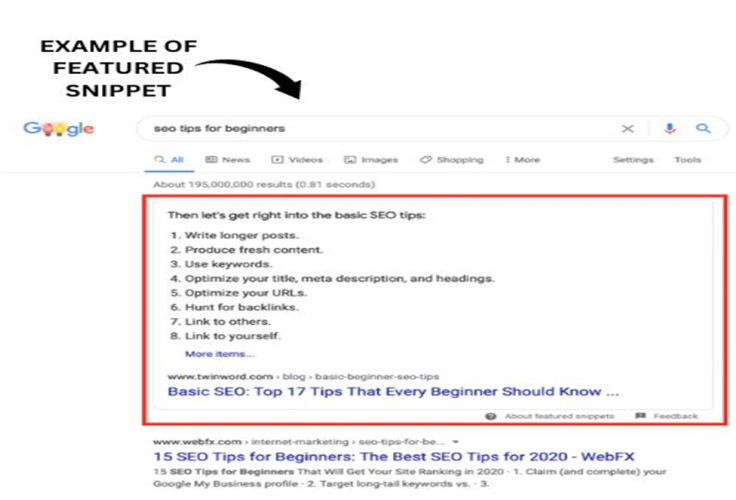
In the world of SEO, featured snippets as one of the important elements helping to attract traffic to particular websites. These are short, direct responses to a user search query, often shown above the SERP, giving a business an opportunity to secure the coveted ‘position zero’. However, to capitalize on the improved intelligent of the search engines, the way in which snippet optimization is being approached is evolving very quickly.
Why Featured Snippets Matter
Before diving into AI-powered optimization, let’s quickly recap why featured snippets are so valuable. A featured snippet is a concise, direct answer to a search query, displayed in a box above the organic search results. This positioning often results in significantly higher click-through rates (CTR) compared to standard search results, making it an essential goal for any SEO strategy.

AI and machine learning technologies are revolutionizing how search engines understand and display content. Google’s algorithms, especially those using RankBrain and BERT, are increasingly focusing on understanding user intent rather than just matching keywords. This means that optimizing for featured snippets requires not only answering the query but also providing a well-structured, contextually rich response that matches how AI interprets user intent.
Here are a few ways AI is shaping the future of search engine snippets:
1. AI for Understanding User Intent
AI’s ability to understand natural language processing (NLP) has made it possible for search engines to better grasp user intent. With algorithms like BERT, Google can now interpret the meaning behind complex or conversational search queries. This has made featured snippet optimization even more crucial, as content needs to be structured in a way that aligns with how search engines interpret and respond to these nuanced queries.
Example: Suppose someone searches for “best tips for improving website SEO. Hi” Instead of simply ranking pages that mention SEO tips, Google now uses AI to identify the page that provides clear, actionable advice aligned with the user’s needs. To optimize for these AI-driven results, businesses should focus on answering specific questions and structuring content in a Q&A format.
2. AI-Driven Content Structuring
AI tools are also helping content creators structure their articles in ways that are more likely to be picked up as snippets. For instance, AI-powered content tools can suggest how to format your content for maximum readability and SEO value. These tools analyze what Google is currently highlighting in featured snippets and offer suggestions to match that style.
Example: Tools like Surfer SEO and Frase use AI to analyze top-ranking pages and suggest keyword usage, headings, and the structure that increases the likelihood of being selected as a featured snippet.
3. Semantic Search and Contextual Relevance
AI’s role in semantic search has given rise to a more sophisticated understanding of context. No longer do search engines simply look for exact keyword matches; they consider the broader meaning of the content. This means that when crafting content for snippet optimization, focusing on context and related terms is essential.
AI-powered tools like Clearscope and MarketMuse help identify related terms, topics, and semantically relevant phrases to include in your content, increasing its chances of being selected for a featured snippet.
How AI Tools Are Assisting in Snippet Optimization
AI-powered platforms are now providing businesses with tools to streamline their optimization efforts. These tools analyze large volumes of data to give actionable insights on what works in current featured snippets and what doesn’t.
Here are some AI-powered tools that are changing the game in optimization:
- Surfer SEO: Surfer SEO uses AI to suggest content optimizations, including keyword density, heading structure, and NLP analysis, all designed to improve the chances of ranking in a featured snippet.
- Frase’s Answer Engine: This tool uses AI to suggest the best possible answers to specific queries, helping users optimize content specifically for featured snippets.
The Future: AI and Automation in Search Intent Optimization
As AI continues to evolve, we can expect further automation in rich snippets. AI can help predict which content has the highest potential for ranking in snippets, automatically structuring articles based on AI’s analysis of user intent and search patterns. Additionally, as algorithms become more advanced, snippets will likely evolve to answer more complex questions in real-time, with AI providing users with the most accurate, context-rich answers.
Conclusion
The future of featured snippets therefore rests on the AI and machine learning elements, especially for a specialty site. By noting the impact of search engine changes paying more attention to featured snippets will call for deeper examination of contextual, structural, and relevance optimization.
No matter if you are employing content-creating tools, considering the voice search factor, or improving feature snippets, AI methods are the solutions to efficient development of featured snippet optimization in the future. The role of AI is quite revolutionary to how the SEO industry is run and those who embrace this change will be able to steer the market on how to encourage traffic and the general online presence.Ready to elevate your SEO strategy? Embrace the future of featured snippets with AI-driven optimization. Get expert guidance on maximizing your site’s visibility and traffic—contact us today!





